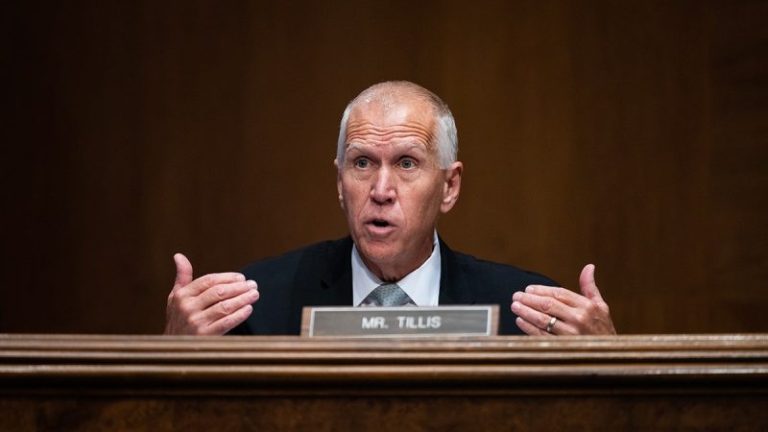- Work at the Kossou Gold Project in 2025 advanced the project toward a maiden Mineral Resource Estimate through more than 20,000 m of drilling and the identification of new gold targets on the western portion of the permit
- Initial exploration at the Kotobi Permit outlined multiple gold-in-soil anomalies, establishing a clear path for follow-up trenching and drill prioritization
- Kobo’s regional growth opportunities, including the Nesdave earn-in agreement and Yakassé Gold Project, are located in Côte d’Ivoire, West Africa, the world’s largest gold-producing region in 2024, where Côte d’Ivoire ranks among the faster jurisdictions globally for discovery-to-production timelines
- Kobo hosted the 2 nd Annual Kobo Cup late November 2025 with the presence of Canadian Ambassador to Côte d’Ivoire, Sandra Choufani
Kobo Resources Inc. ( ‘ Kobo’ or the ‘ Company ‘) ( TSX.V: KRI ) is pleased to provide a review of progress achieved during 2025 and key milestones planned for 2026, following a year in which the Company materially advanced its 100%-owned Kossou Gold Project (‘ Kossou ‘) toward a maiden Mineral Resource Estimate and expanded its gold exploration portfolio across Côte d’Ivoire, within West Africa, one of the world’s largest gold-producing regions.
This press release features multimedia. View the full release here: https://www.businesswire.com/news/home/20260112782664/en/
KDD0056: 10.0 m at 4.57 g/t Au from 176.0 m
Edward Gosselin, CEO and Director of Kobo commented: ‘2025 was a year of focused execution for Kobo . We advanced an extensive exploration program that materially expanded the drill database, advanced geological and resource modelling at the Jagger and Road Cut Zones and identified additional targets at the Kadie Zone as well as on the western portion of the Kossou permit that will require follow-up work in the year ahead.’
He continued: ‘With more than 20,000 m drilled during 2025, this highly prospective target is well positioned as we move toward a maiden Mineral Resource Estimate in 2026, a key technical catalyst for the Company. Drilling at Kossou restarted on January 12, 2026 following the holiday break and we look forward to expanding the current ongoing resource modelling.’
He concluded: ‘Beyond Kossou , we completed first-pass exploration at the Kotobi Permit , where multiple gold-in-soil anomalies were identified and prioritized for follow-up sampling, trenching and drill testing to commence in Q1 2026. We also continued early-stage evaluation under the Nesdave earn-in agreement, adding to the Company’s pipeline of opportunities in Côte d’Ivoire. Finally, we are working with the governmental authorities to secure the issuance of research permits for the Bocanda South Application and the Yakassé Gold Project Application. As we look ahead to 2026, our focus remains on advancing these assets through disciplined, stepwise exploration and allocating capital toward the most technically compelling targets.’
Advancing the Kossou Gold Project Toward Resource Definition
During 2025, Kobo focused on advancing Kossou through a comprehensive exploration program designed to support geological understanding, resource modelling, and the identification of additional targets across the permit area. Total drilling at Kossou now stands at approximately 37,160 metres (‘m’) across 200 drill holes , which has established a strong technical foundation as the Company advances toward further resource definition.
Diamond drilling remained the primary focus at Kossou in 2025, with 20,447 m drilled across all targets . A total of 17,421 drill core samples were collected and analysed, including 2,613 QA/QC samples . Drilling during the year included 10,979 m at the Jagger Zone , 9,029 m at the Road Cut Zone , 236 m at the Kadie Zone , and 203 m at the Shadow Zone .
Key Intercepts from the 2025 Drill Program:
Road Cut Zone
- KDD0095
- 17.0 m at 3.87 g/t Au from 22.0 m, incl. 9.0 m at 6.84 g/t Au from 23.0 m (October 8,2025)
- KDD0056
- 10.0 m at 4.57 g/t Au from 176.0 m (January 30, 2025)
Jagger Zone
- KDD0111
- 9.0 m at 3.60 g/t Au from 119.0 m (November 30, 2025)
- KDD0085
- 20.0 m at 1.41 g/t Au from 106.0 m (June 29, 2025)
Drilling at the Jagger and Road Cut Zones continued to return consistent gold mineralisation, reinforcing structural continuity and supporting the Company’s evolving geological model. In parallel with drilling, Kobo advanced geological interpretation and modelling at both zones, with in-house resource modelling currently underway. Additional drilling is expected to be required at the Kadie Zone to further assess its potential. Once final assay results are received in early 2026, the Company plans to update its geological and resource models as it works toward a maiden Mineral Resource Estimate.
Other exploration work completed during the year included extensive surface programs comprising 2,391 soil samples (including 134 QA/QC samples), 58 prospective rock samples , and 28 trenches totalling 1,072 metres (‘ m ‘), from which 1,147 samples were collected (including 23 QA/QC samples).
In addition to advancing known mineralised zones at its prospective targets on the permit, exploration at Kossou in 2025 identified two new target areas, including zones on the western portion of the permit where soil geochemical surveys outlined strong northwest-trending gold anomalies. The Company expects additional exploration upside from these targets beyond the current resource focus areas and plans to initiate follow-up work in 2026.
‘ The Company encourages current and prospective investors to refer to past drill result announcements to read the full extent of discoveries made to date at Kossou as well as its unique and strategic location. A full list of press releases is located at www.koboresources.com/en/news .’
Building a Pipeline of Regional Growth Opportunities in West Africa
Kotobi Permit
In parallel with work at Kossou , Kobo advanced early-stage exploration across its broader Côte d’Ivoire portfolio in 2025, with the objective of identifying and prioritizing new gold targets capable of supporting a future growth platform in West Africa.
At the Kotobi Permit , the Company completed its second phase of initial exploration with activities during the year including 5,016 soil samples (including 153 QA/QC samples), bringing the total soil samples to 7,743 (including 236 QA/QC samples), 46 termite mound samples , 59 prospective rock samples , 16 pits yielding 125 samples , and 16 trenches totalling 370 m , from which 385 samples were collected (including 9 QA/QC samples). Results from this work outlined multiple gold-in-soil anomalies, establishing a clear framework for follow-up sampling, trenching, and advancement toward initial drill testing. Based on results to date, the Company expects to advance these priority targets toward initial drill testing in Q1-2026.
Earn-In Opportunities
Under the Nesdave earn-in agreement at the Agnibilekro Project , Kobo completed early-stage exploration programs during 2025, including 2,838 soil samples (including 113 QA/QC samples) and 13 reconnaissance rock samples . These programs contributed to refining priority target areas for continued evaluation.
The Company is awaiting the outcome of the Côte d’Ivoire Mine Department’s review of the Yakassé Gold Project and Bocanda South permit applications and anticipates initiating work upon permit issuance, which is expected in the first half of 2026.
The 2 nd Annual Kobo Cup
Community engagement remained a central focus for Kobo in 2025, as the Company strengthened its relationships with communities around the Kossou Gold Project. A major highlight of the year was the second annual Kobo Cup , a community football tournament designed to empower youth, foster local participation, and celebrate village identity.
Building on the inaugural 2024 event, the 2025 Kobo Cup expanded into a multi-team tournament featuring the villages of Kossou , Bocabo , and Angossé , all located near Kossou. Youth participants collaborated with local artists in a village jersey design workshop, creating official team jerseys that celebrate each village’s culture and pride. The Village of Kossou emerged as the winner of the 2025 Kobo Cup.
In a new addition this year, Kobo also partnered with Rockstone Drilling to host the Junior Kobo Cup , a training-focused workshop bringing together young footballers from each village and professional coaches from Assinie Tempo FC , a top-tier league team in Abidjan. The Junior Kobo Cup offered players hands-on training, mentorship, and exposure to professional standards, giving youth an opportunity to develop their skills.
A cornerstone of the event’s success was Kobo’s partnership with Coast2Coast Entertainment , one of West Africa’s leading media and entertainment companies. Their ongoing support, including providing football equipment, media amplification, and local expertise was instrumental in this year’s Kobo Cup .
The Kobo Cup continues to gain recognition beyond the local community, attracting attention from key individuals and dignitaries, including Canada’s Ambassador to Côte d’Ivoire, Sandra Choufani .
Looking Ahead: 2026 Priorities for Kobo
In 2026, Kobo remains focused on advancing Kossou toward a maiden Mineral Resource Estimate, a key technical milestone for the Company, supported by continued geological and resource modelling and targeted follow-up drilling where required. The Company also plans to initiate its first drill program at the Kotobi Permit, subject to results from ongoing target prioritization.
Additional work is planned across the western portion of the Kossou Permit to further evaluate newly identified targets, while continued evaluation under the Nesdave earn-in agreements and at Yakassé and Bocanda South is expected to define additional growth opportunities. More broadly, Kobo intends to continue assessing regional opportunities across West Africa, a region that remains central to global gold production and exploration activity.
2025 Media Interviews
During 2025, Kobo management participated in several media interviews to discuss the Company’s exploration progress, strategy, and outlook. Click the links below to watch.
Review of Technical Information
The scientific and technical information in this press release has been reviewed and approved by Paul Sarjeant, P.Geo., who is a Qualified Persons as defined in National Instrument 43-101. Mr. Sarjeant is the President and Chief Operating Officer and Director of Kobo.
About Kobo Resources Inc.
Kobo Resources is a growth-focused gold exploration company with a compelling gold discovery in Côte d’Ivoire, one of West Africa’s most prolific gold districts, hosting several multi-million-ounce gold mines. The Company’s 100%-owned Kossou Gold Project is located approximately 20 km northwest of the capital city of Yamoussoukro and is directly adjacent to one of the region’s largest gold mines with established processing facilities.
With over 31,272 metres of diamond drilling, nearly 5,887 metres of reverse circulation (RC) drilling, and 7,100+ metres of trenching completed since 2023, Kobo has made significant progress in defining the scale and prospectivity of its Kossou’s Gold Project. Exploration has focused on multiple high-priority targets within a 9+ km strike length of highly prospective gold-in-soil geochemical anomalies, with drilling confirming extensive mineralisation at the Jagger, Road Cut, and Kadie Zones. The latest phase of drilling has further refined structural controls on gold mineralisation, setting the stage for the next phase of systematic exploration and resource development.
Beyond Kossou, the Company is advancing exploration at its Kotobi Permit and is actively expanding its land position in Côte d’Ivoire with prospective ground, aligning with its strategic vision for long-term growth in-country. Kobo remains committed to identifying and developing new opportunities to enhance its exploration portfolio within highly prospective gold regions of West Africa. Kobo offers investors the exciting combination of high-quality gold prospects led by an experienced leadership team with in-country experience. Kobo’s common shares trade on the TSX Venture Exchange under the symbol ‘KRI’. For more information, please visit www.koboresources.com .
NEITHER THE TSXV NOR ITS REGULATION SERVICES PROVIDER (AS THAT TERM IS DEFINED IN THE POLICIES OF THE TSXV) ACCEPTS RESPONSIBILITY FOR THE ADEQUACY OR ACCURACY OF THIS RELEASE.
Cautionary Statement on Forward-looking Information:
This news release contains ‘forward-looking information’ and ‘forward-looking statements’ (collectively, ‘forward-looking statements’) within the meaning of the applicable Canadian securities legislation. All statements, other than statements of historical fact, are forward-looking statements and are based on expectations, estimates and projections as at the date of this news release. Any statement that involves discussions with respect to predictions, expectations, beliefs, plans, projections, objectives, assumptions, future events or performance (often but not always using phrases such as ‘expects’, or ‘does not expect’, ‘is expected’, ‘anticipates’ or ‘does not anticipate’, ‘plans’, ‘budget’, ‘scheduled’, ‘forecasts’, ‘estimates’, ‘believes’ or ‘intends’ or variations of such words and phrases or stating that certain actions, events or results ‘may’ or ‘could’, ‘would’, ‘might’ or ‘will’ be taken to occur or be achieved) are not statements of historical fact and may be forward-looking statements Forward-looking statements are necessarily based upon a number of estimates and assumptions that, while considered reasonable, are subject to known and unknown risks, uncertainties, and other factors which may cause the actual results and future events to differ materially from those expressed or implied by such forward-looking statements. Such factors include, but are not limited to: general business, economic, competitive, political and social uncertainties; and the delay or failure to receive board, shareholder or regulatory approvals. There can be no assurance that such statements will prove to be accurate, as actual results and future events could differ materially from those anticipated in such statements. Accordingly, readers should not place undue reliance on the forward-looking statements and information contained in this news release. Except as required by law, Kobo assumes no obligation and/or liability to update the forward-looking statements of beliefs, opinions, projections, or other factors, should they change, except as required by law.
View source version on businesswire.com: https://www.businesswire.com/news/home/20260112782664/en/
For further information, please contact:
Edward Gosselin
Chief Executive Officer and Director
1-418-609-3587
ir@kobores.com
Twitter: @KoboResources | LinkedIn: Kobo Resources Inc.










